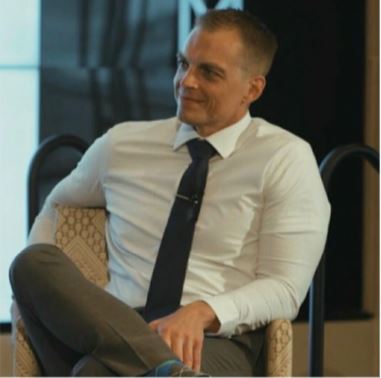Reflecting on Psalm 119:165 (“Great peace have those who love your law; nothing can make them stumble”), D. L. Moody notes,
Sometimes I am amazed to see how little it takes to drive all peace and comfort from some people. Some slandering tongue will readily blast it. But if we have the peace of God, the world can not take that from us” (Secret Power, 88).
He goes on to suggest,
Wherever there is a Bible-taught Christian, one who has the Bible well marked, and daily feeds upon the Word by prayerful meditation, he will not be easily offended” (Secret Power, 88).
As much peace as we receive from loving God’s law and having a strong rooting in Scripture, nothing stings quite like ungenerous speech. If you’ve never had the (dis)pleasure of reading or listening to an account in which you are assigned inappropriate motives or have your intelligence or integrity questions, I hope you never do. I agree with Moody. The more rooted I become in the Scriptures and in the community of faith, the more peace I feel despite such “slandering tongues.” Yet, ungenerous speech is, in my estimation, one of the most unloving activities in which a person can engage. Because ungenerous speech interprets a set of words or actions as deviant or deficient in some way, it can diminish an individual’s character in the eyes of others and call their motives and/or competence into question. . .
Generous speech seeks to avoid defaming others by committing to faithful testimony. Generous speech is not naive. It doesn’t deny evidence or shy away from discussing bad acts. Generous speech does, however, exercise restraint. It allows ambiguities to stand recognizing them as avenues for further exploration rather than opportunities to fill in gaps with less-than-truthful portrayals. Generous speech has at least three characteristics: (1) it seeks to be thick, (2) it commits to asking questions, and (3) it adopts engaging in discourse as its overriding goal.
Thick– Generous speech doesn’t just advance a single interpretation as if it is the only way to construe the facts. Even if one ends up arguing for a particular interpretation, generous speech recognizes alternatives. In reality, there are always times when we have to fill in gaps. We seldom have all the information needed to come to a firm conclusion about what is happening. When we advance a single option in our portrayals of individuals or groups, we limit our thinking. Arguably, we create our own blind spot by telling a story that supports a hypothesis to which we have already committed. As Kahneman notes,
Contrary to the rules of philosophers of science, who advise testing hypotheses by trying to refute them, people (and scientists, quite often) seek data that are likely to be compatible with the beliefs they currently hold. The confirmatory bias of System 1 [the more intuitive work of the human mind] favors uncritical acceptance of suggestions and exaggeration of the likelihood of extreme and improbable events…you will be prone to overestimate the probability of disaster” (Daniel Kahneman, Thinking, Fast and Slow, 81).
Generous portrayals need to be thick so that no single hypothesis comes to dominate one’s understanding without at least some recognition that there are other feasible, if not probable, ways of construing the evidence.
Ask questions– In generous speech, asking questions becomes an alternative to making assumptions. Obviously, there is a way of using a phrase that ends in a question mark that ends up being more accusation than inquiry. As such, an honest question seeks truth, not confirmation. Questions are vehicles for conveying and cultivating intimacy. In asking a question, we convey our desire to know and understand another person. We request that they trust us with information we don’t already know not because of some confidentiality agreement that precludes us from spreading that information, but because we desire to have a trusting relationship. Generous portrayals use questions to identify gaps in knowledge. Rather than hazarding a guess or making an unfounded claim, a question can be a vehicle for deepening understanding.
Engage in discourse– Generous speech does not demand submission to a particular narrative. It does not bend every word or action into some sort of nefarious deed. Generous speech is careful with words. It is observant before it is interpretive. Generous speech can afford to be careful because the primary goal is to engage in discourse with another rather than to win an argument.
So, why is it that generosity is so important? First, from a theological perspective, all humans are made in the image of God. As such, there is no room for the demonization of others or for diminishing others in any way. To demonize and diminish may not rise to the legal definitions of slander or libel, but Christians are held to a higher standard than the law of a given country. “Revilers” are listed alongside idolaters and several other groups in 1 Corinthians 6:9-10. It seems to be something we should take pains to avoid. One could also point to various comments about speech in Scripture. For instance, what does ungenerous speech say about who we are if it is really the case that “out of the abundance of the heart the mouth speaks” (Matt 12:34)? Being Christian involves speaking Christian. When we opt to advance an ungenerous portrayal of people, we are, at best, lazy (sloth is also a problem; cf. Prov 19:15; Eccl 10:18; Rom 12:11) and, at worst, misrepresenting what it means to be dedicated to a risen Christ.
Second, one could make the case that ungenerous speech is a form of false testimony. To the extent that it makes accusations and assumes motives, ungenerous speech demonstrates a lack of commitment to the truth. As Christians, we need not fear truth even when the truth hurts. Confession is a mark of the community of faith because in confession we demonstrate a radical commitment to truth by admitting our own failings and shortcomings (1 John 1:9). We need to remember that it is just as easy to promote falsehood when we misconstrue facts to fit our own narratives or fill in gaps that accord with a reality of our own making. To some degree, we must take seriously the opportunity we have for misrepresenting others in the public square. To be a community committed to the truth does not mean that we are a community that always has the answers. Rather, it may well mean that we practice restraint in interpretation.
Finally, generosity is important because, without generous speech, we will continue divided. I have noted my reticence for “naming names” in my various writings in other posts. While I have interacted with ideas and offered judgments elsewhere, I do attempt to stay focused on the ideas rather than attacking the person who wrote them. As someone who has put ideas out into the world (many of which, I’m quite sure, need more development if not revision), I appreciate criticism that helps me see my own errors in thought and to strengthen or revise my work. I trust that other authors feel the same. When we engage in ungenerous portrayals, we create division. In the church, we are supposed to be together. In my estimation, generosity extends even to moments when we need to correct one another. Boldness without generosity can be brutal, particularly as we live in a world where creating a mob seems, unfortunately, easy.
As you write, read, or speak, I would encourage you to consider what it means to be generous. That may mean rethinking the way you speak to or about others. It may mean that you stop reading or listening to those who are not generous in their speech. While I can’t say just what you should do, I can urge you to fight to stay generous. Let’s remember that, as Christians, we are to be a people whose generosity aspires to match the gift we’ve been given in Christ Jesus. We never need to regret being generous because through generosity we tell the story of God’s redemption and proclaim what it means to “walk in newness of life” (Rom 6:4) with our Lord and Savior.
This is an updated edition of a post originally published on Crazy Different
Featured Image by Richard Dykes on Unsplash




















Comments are closed.